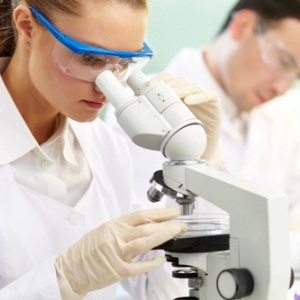
On 29 May 2015, the University of Cape Town (UCT) and Groote Schuur Hospital (GSH) launches a unique Hair and Skin Research Laboratory (HSR Lab) that will focus on comprehensive hair testing and safety in cosmetic formulation.
The HSR Lab, established with support from the National Skills Fund for R8.6m, is the brainchild of Prof Nonhlanhla Khumalo, Head of the Division of Dermatology at the University of Cape Town and Groote Schuur Hospital.
“The HSR Lab is a dedicated hair testing and skin toxicology facility housed on the top floor of the Old Main Building at Groote Schuur Hospital, and is the first of its kind locally and internationally,” says Prof Khumalo.
She explains that the idea of establishing the laboratory was initially to study causes and treatments of hair loss and prevent or reduce side effects from cosmetics that dermatologists treat daily. Later the idea grew bigger with the recognition of an immerging field of using hair as a testing substrate in Medicine. Unlike blood and urine that have a high turnover hair is a medical repository that can for e.g. be used to detect drug exposure dating back months and even years previously, depending on hair length.
The HSR Lab makes shocking discovery
The work of the HSR Lab was last year the focus of wide-spread media attention when it published the results of its first study, on Brazilian Keratin Treatments, raising public health concerns about the use of the latest hair craze popular for giving water-resistant straight hair for up to 3 months.
Read: Brazilian Blowout a health threat
The findings were that all Brazilian Keratin Treatments on the SA market at the time contained higher than recommended levels of formaldehyde. Further, six of the seven brands contained five times the legal limit and five of these listed on the bottle that the product was “formaldehyde-free”. The study is being repeated with Brazilian Keratin Products currently on the market.
The HSR Lab’s latest study (due for publication later this year) identified banned or illegal substances including mercury, hydroquinone and prescription-strength steroids, mostly imported in popular skin lightening creams bought from informal traders or over the counter from pharmacies in Cape Town.
“So the HSR Lab offers opportunities firstly for clinicians and scientists to collaborate in the effort to protect the public from preventable harm,” says Prof Khumalo. “The availability of a research and testing facility is only part of a multidisciplinary collaboration that is needed not only to establish a coherent legal and regulatory framework but to also improve industry compliance,” she explains.
The HSR Lab also provides an opportunity to study the basic science of hair anatomy and physiology in relation to incorporation of products circulating in blood. For example, there is evidence to suggest that variation in hair-curl is influenced by hair proteins and fat content. This may be crucial in interpreting levels of fat-soluble drugs in hair.
Prof Khumalo is also very excited about the prospects for multi-disciplinary collaborations and training of a new cadre of scientist in the new MSc (Med) in Trichology and Cosmetic Science, making UCT the first to offer this unique program.
Modern economies require multi-skilled training to increase employment opportunities and entrepreneurship, she explains, so graduates (MSc/PhD) trained in this facility will be able to work in diverse industries where hair is increasingly being used for testing (including Forensic Science, Pharmacology, Cosmetic Industry).
The HSR Lab’s research interests include
- validating procedures for preparing hair samples for testing (drugs, hormones, toxins for example);
- investigating mechanisms that govern hair curl (and their influence on substance incorporation);
- discovery of new and safe molecules to modify hair shape; skin toxicology and method development to identify toxins;
- valid measurements of skin penetration;
- health and safety issues in cosmetic formulation.
The Skin is the largest organ in the body with a potential to easily absorb toxins that can cause severe ill-health and even death such as some pesticides used in the farming industry.
Read more:
Tygerberg breakthrough to revolutionise burn treatment




 Publications
Publications
 Partners
Partners













